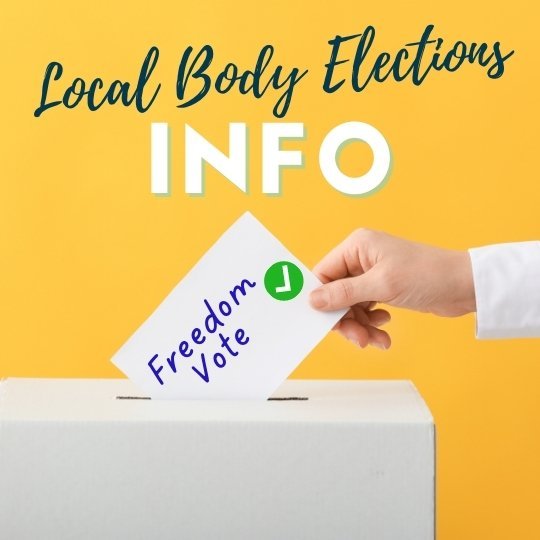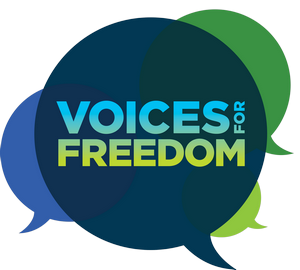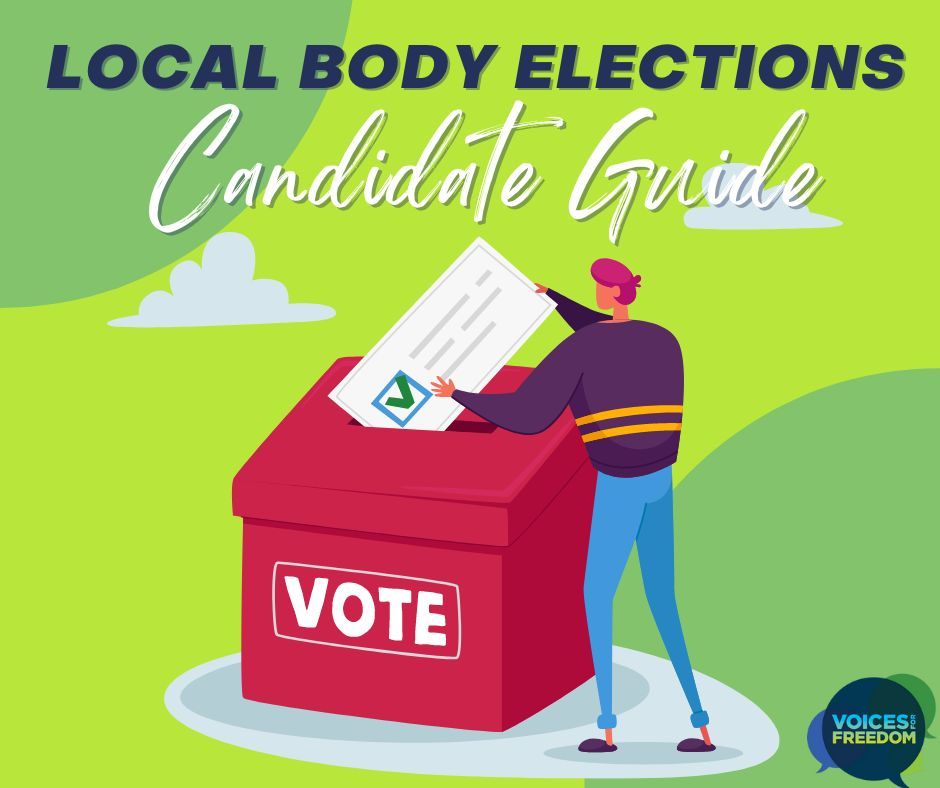
We have encouraged concerned New Zealanders who understand the issues at stake to stand as independents in the upcoming Local Body Elections in order to start affecting positive change from within the system.
We are providing support to candidates, helping connect people who would like to support candidates and sharing educational content specific to local government issues.
Please complete this form and join our Local Body Elections email list if you are:
- Interested in keeping up to date with local government issues
- Keen to support a candidate (there is a long list of ways you can support)
- Already standing for local government and would like to let us know that you are.
What You Need To Know
Click Here to download the Voices for Freedom Local Body Elections Candidates Guide
The purpose of local government
To enable democratic local decision-making and action by, and on behalf of, communities
To promote the social, economic, environmental, and cultural well-being of communities in the present and in the future. (Local Government Act 2002, section 10 (1)).
The 2022 Local Body Elections are a critical opportunity for concerned New Zealanders to nominate and vote for our people to represent us in our communities and to make an impact on the extent to which the UN Agenda is making at a local level. This opportunity only comes up every three years, if you’re unhappy with the direction our country is going it’s time to take some decisive action. For the next week, we all need to work hard to find people to run and ensure that their application is completed on time.
The deadline for candidate nominations for the local body elections is the 12th of August.
There are over 1500 paid positions in local government around the country. The overwhelming majority of these positions are part-time roles but the exact hours and remuneration depends on the location.
The roles include – Regional Councillors, City Councillors, District Councillors, and Community Boards members (called Local Board members in Auckland).
What you need to do to run as a candidate:
- Complete an application form – available via the local government links in our PDF.
- Provide proof of New Zealand citizenship.
- Pay the $200 fee – if you can’t afford this get in touch with us via email so that your local group can help to fund this.
- Write a 150 word blurb to describe your positions and what you are standing for.
- Find two people to nominate you – the two nominators must reside in the area you are campaigning in.
Regional Councillors:
These 16 councils are in charge of the integrated management of land, air, and water resources, supporting biodiversity and biosecurity, providing regional transport services, and building resilient communities in the face of climate change and natural hazards.
If you were successful and able to get onto a regional council you would have the chance to push back and stop some of the unworkable regulations being forced upon New Zealanders. For example, SNAs and ‘managed retreat’.
District and City Councillors (Territorial Authorities):
The powers and responsibilities of city and district councils are all the same. The only difference is that city councils serve a population of more than 50,000 in a predominantly urban area.
Their responsibilities include –
Sustainable district well-being, the provision of local infrastructure, including water, sewerage, stormwater, and roads.
Environmental safety and health, district emergency management and civil defence preparedness, building control, public health inspections, etc.
Controlling the effects of land use (including hazardous substances, natural hazards, and indigenous biodiversity), noise, and the effects of activities on the surface of lakes and rivers.
If you were successful and able to get onto a city or district council you would be able to advocate for your council to join C4LD, better roading infrastructure, stop the mindless spending on bureaucrats’ pet projects, and deliver what the community truly needs.
Community Board Members (called ‘Local Board Members’ if in Auckland):
Some 110 community boards now operate in both urban and rural areas within local authorities throughout New Zealand. They carry out functions and exercise those powers delegated to them by their councils. Boards meet 8-10 times a year and remuneration varies from around 7k per board member per year to around $14k for the chairperson of the Board.
Their purpose is to:
1. Represent and act as an advocate for the interests of the community.
2. Consider and report on any matter referred to it by their council.
3. Maintain an overview of services provided by their council within the community;
communicate with community organizations and special interest groups in the community, and undertake any other responsibilities delegated by their council.
Levels of delegation vary by region. In Southland, Boards have the authority to spend up to $300,000 on projects. In Thames-Coromandel, boards have control of local harbours, parks, halls, libraries, airfields, swimming pools, toilets, cemeteries, buses, planning, grants, economic development, and bylaws.
If you were successful and able to get onto a community board you would have the chance to affect change in your immediate geographic area. You would be able to potentially approve grants for things like community gardens and oppose wasteful spending at the community level (such as the Tuatapere main street revival project that Jaspreet covered in our recent webinar).
Related Videos
https://odysee.com/@voicesforfreedom:6/It’s-Time-To-Get-Involved-In-Local-Government:5
https://odysee.com/@voicesforfreedom:6/Nick-Kearney—Hear-Our-Voices-NZ—Tane-Webster:9
Useful Links
Click the below link below to see who has been nominated for each of the Councillor and Community Board positions available in a particular area. These pages are updated daily. Your goal is to make sure that every position possible is being contested by someone who will represent your interests and concerns.
https://electionz.com/lge2022_resource/nominations.html
Auckland Council Candidate Public Report. Click to download
New Plymouth District Council Candidate Public Report. Click to download
South Taranaki District Council Candidate Public Report. Click to download
Stratford District Council Candidate Public Report. Click to download
https://odysee.com/@voicesforfreedom:6/local-body-elections-update:f Click to download
Would you believe it, local body elections are run through two different election companies depending on your area!
The majority are run through Electionz
https://electionz.com/lge2022_resource/nominations.html
The remaining are run through
http://www.electionservices.co.nz/

